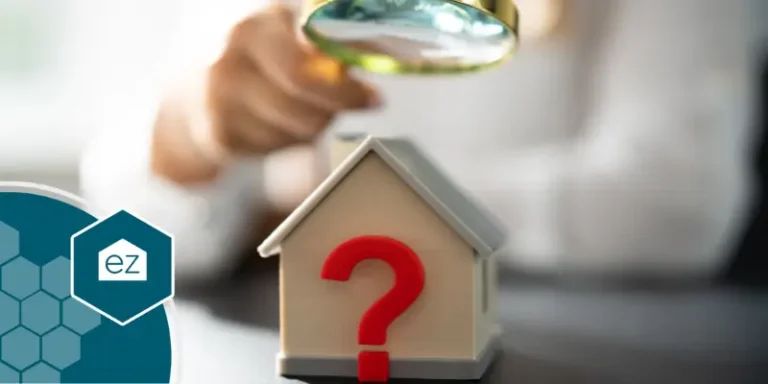Is Now the Time To Buy a New Home?

Is Now the Time To Buy a New Home?
There’s an old proverb about timing: the best time to plant a tree was twenty years ago. The second-best time is now. And while that proverb might not apply to every real estate market, it hints at something many investors feel. Sometimes, it’s best to start now, even if the conditions aren’t right. You never know what the market will bring next.
Are we in that situation now, with interest rates trending upward? A recent dip in mortgage rates may hint at a reprieve. In late January, the 30-year fixed-rate mortgage rate dropped to 6.15%, its lowest figure in over four months. While those numbers are far higher than the 3-4% mortgage rates some investors saw only a few short years ago, it hints at a dip that may be good for home buyers.
Taking Advantage of Low-Cost Loans

The only trouble with figuring out when the best time to buy a new home is that no one has a crystal ball. According to Redfin, there’s been a slow drop in the average home prices in the U.S. since their peak in May of 2022. Although there hasn’t been an outright collapse in home prices, this temporary dip may be an advantageous time to buy a home.
The ever-increasing interest rates in the United States and across the world are a contributing factor to the decline in home pricing.
Higher interest rates mean people have reduced buying power as their mortgages are more expensive. Buyers are more reluctant to apply for a loan when they know that their mortgage payment will eat a larger chunk out of their paycheck. The same is true for homeowners who know that if they want to upgrade their home using funds from refinancing or a home equity line of credit (HELOC), their new mortgage will be at higher rates.
Sellers aren’t exempt from the impact of high mortgage rates. Those who have locked in a home mortgage for the reduced rates we saw in 2020-2021 may want to keep those low payments locked in, avoiding moving unless absolutely essential. And if sellers do have to move, they’re finding they need to price correctly, or they may not attract potential buyers. The days of multiple offers above the asking price are over.
Another downside? The result of sellers holding on to their properties means home supply may potentially inch lower, further stressing affordability.
What will be key for the average mortgage applicant in the coming years is finding affordable rates. As CNBC’s statistics note, there’s a temporary dip in mortgage rates going on right now. The question is whether that dip represents a rare opportunity. Or, will mortgage rates continue to decline, potentially making it more advantageous for home buyers to wait until later?
Watching Inflation to Get a Sense of Mortgage Rates
With the Federal Reserve raising interest rates consistently over the past year, it makes sense for home buyers to stay reticent. If inflation continues, the Federal Reserve may keep interest rates high to combat it.

This puts potential home buyers in a tough spot. Rising inflation makes everything more expensive. That means people must get creative to make their paychecks stretch as far as possible, leaving them with less savings and a reduced budget for essentials like housing.
Inflation also has an adverse effect on the mortgage market. When the Federal Reserve keeps rates high, it impacts mortgage rates, making buying a home more expensive. That’s why home buyers who watch the CPI and inflation numbers will likely do a little better when it comes to predicting where home prices may be going. If inflation cools off in 2023, it could mean lower rates. That, in turn, could ease the affordability pressure on home buyers.
How Should Home Buyers Figure Out When to Buy?

There’s no universal answer on when to buy a home. After all, one region or neighborhood may have different prices than the next, so a deal in one location might not be a deal in another. But there are some individual aspects to buying a home that can give home buyers a better sense of when the timing lines up for them:
- Having enough saved up for a downpayment. Typically, a downpayment of 10-20% will make it easier to have a lower mortgage payment and improved loan terms. Rather than isolating when there’s a 0.05% interest rate swing, this will dramatically impact the home buyer’s ability to afford a particular home.
- Browsing different lenders. It’s important to know what the mortgage interest rates might look like from different lenders. Don’t expect that these will vary wildly enough to make a difficult environment into a bargain, but you can give your future monthly mortgage payments a break by taking the time to shop around. Too often, home buyers get “house fever” and move too quickly on a mortgage when they should take a breath, slow down, and shop around for the best deal possible.
A recent dip in mortgage interest rates is an encouraging sign. The question is whether this trend will continue throughout 2023, making it better for home buyers to wait. If interest rates keep going down, you may be able to refinance later. But if they spike up along with housing prices down the line, you may find that you’re glad you could lock the rate in when you did. But if you can find a great deal in your budget, there’s no time like the present.
Start Your Home Search
Preston Guyton
Share this Post
Related Articles
Buying a Home
What to Know About Termites In Your Home
Buying a Home
What to Know About Spray Foam Insulation
Buying a Home
5 Most Affordable Places to Buy a Home in Tennessee
Buying a Home





